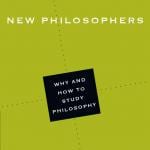We’ve covered volumes of the 19th century Church Fathers collection in the past. And as usual, the volume in question this time is something of a mixed bag. Volume five of the First Series of the Nicene and Post-Nicene Fathers contains Augustine’s Anti-Pelagian and Anti-Semi-Pelagian writings. You can find a 19th century translation for free here, for Kindle here, or a set of modern translations here. As is often the case, it’s better (albeit more expensive) to use the contemporary translations over the free 19th century ones.
This particular volume is solid gold, and a good example of the best and worst of Augustine’s theology. Don’t get me wrong, if you’ve not read any Augustine before you should still start with the Confessions and the City of God, but this set of (sort-of) short essays would make an excellent third read.
Even before getting to Augustine’s writings, the volume includes an introductory essay by B.B. Warfield giving a history of the Pelagian controversy and an overview of the theology if each side. It is also worthwhile, and acts as a sort-of summary of the book as a whole.
When I say this volume includes the “worst” of Augustine’s theology, I mean that this is the worst of Augustine’s mature theology. As he points out even in these essays, he himself believed things when he was younger that were holdovers from his pagan/Manichean/Platonist days. As much of that bad theology fell off, it was mostly replaced with solid, faithful Christian doctrine. Yet, one doctrine hung around that is at least an understandable mistake, but nevertheless on that does run a strand of contaminant through at least some of his essays. This is the false doctrine of baptismal regeneration. We also see some of his problematic views of marriage, though these are less pronounced here.
Aside from that, this volume is full of the best of Augustine’s mature theology. namely: grace, grace grace! Consider the following:
The Manicheans say that the good God is not the Creator of all natures; the Pelagians say that God is not the Purifier, the Saviour, the Deliverer of all ages among men. The universal church condemns both; as well maintaining God’s creation against the Manicheans, that no nature may be denied to be framed by Him, as maintaining against the Pelagians that in all ages human nature must be sought after as ruined. (Against Two Letters of the Pelagians, II.2)
Or this:
[God] orders all men to commit no sin, although He knows beforehand that no man will fulfil the command; in order that He may, in the case of all who impiously and condemnably despise His precepts, Himself do what is just in their condemnation; and in the case of all who while obediently and piously pressing on in his precepts, though failing to observe to the utmost all things which He has enjoined, do yet forgive others as they wish to be forgiven themselves, Himself do what is good in their cleansing. For how can forgiveness be bestowed by God’s mercy on the forgiving, when there is no sin? or how prohibition fail to be given by the justice of God, when there is sin? (On Forgiveness of Sins, and Baptism, II.23)
And so on.
Augustine’s reflections on grace involve study of why the Bible says people need grace, which means that we need to think about human nature and original sin. In all of this we see the false anthropology of the Pelagians and the Semi-Pelagians, who see a neutral free will as a, even as the, central aspect of human nature, set against the Biblical doctrine of original sin. We also see their false soteriology, which involves God giving grace only to those neutral actors who independently ask for salvation (Pelagians) or God enabling the individual to ask, but not actually saving anyone (Semi-Pelagians). This is set against the Biblical doctrine of grace, freely given and apart from the initiative of the individual mired in original sin.
Again, if you’re going to read Augustine you shouldn’t start here. But you should get here fairly quickly after reading Augustine’s more (justly) famous writings.
Dr. Coyle Neal is co-host of the City of Man Podcast and an Assistant Professor of Political Science at Southwest Baptist University in Bolivar, MO













